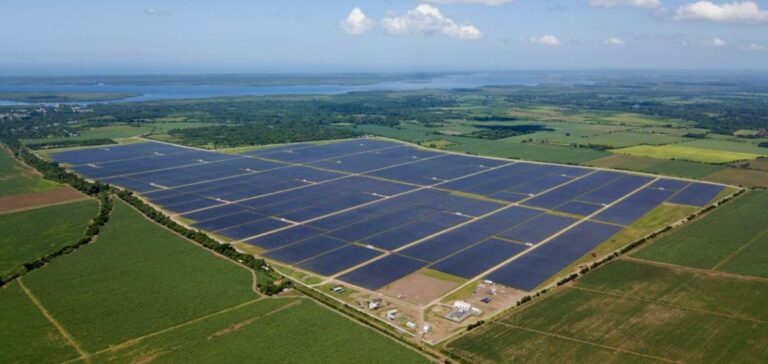The Northern Triangle, comprising Guatemala, Honduras and El Salvador, is emerging as a strategic center for investment in renewable energies and nearshoring. These three Central American countries offer unique potential for the development of sustainable energy projects, attracting the attention of international investors and technology companies.
At the recent “Technology and Infrastructure Summit” held in San Salvador on July 17, the HUGE Business & Investment Council highlighted the crucial opportunities offered by these booming sectors. The event, co-organized by the Inter-American Development Bank (IDB), brought together development banks, institutions, government officials and leading companies such as Nokia, Invenergy LLC and COHERSA. The summit aimed to promote investment in renewable energies and the development of the infrastructure needed to support these industries.
Energy potential of the Northern Triangle
Prof. Dr. Juan José Daboub, President of the HUGE Business & Investment Council, emphasized the importance of renewable energies for the region. “The technological and energy revolution offers the Northern Triangle an unprecedented opportunity,” he declared. Edwin Escobar, CEO of Aristos Inmobiliaria, expressed his commitment to the DataTrust project, which includes a sustainable energy component. “We’ve attracted significant interest from international companies ready to invest in renewable energy in El Salvador,” he added.
Key Investments and Partnerships
The summit highlighted a number of strategic projects and partnerships, notably with Invenergy LLC, a world leader in renewable energies, and COHERSA, a local company specializing in hydroelectricity. Tomás Bermúdez, General Manager for the IDB Group in Central America, asserted that “support for energy projects is crucial for the sustainable economic development of El Salvador and the whole region”.
Technology and Infrastructure for a Sustainable Future
Elizabeth Bravo, head of fixed networks for Nokia in Latin America, emphasized the importance of technological infrastructure in supporting energy projects. “Technological development is essential to ensure efficient and sustainable energy infrastructures,” she declared. Technological support will help create more resilient power grids and promote the use of renewable energies.
Advances in renewable energies and technological infrastructure are driving growth in the Northern Triangle, fostering a diversified and resilient economy. HUGE is committed to supporting private sector initiatives that contribute to this vision of sustainable, self-reliant development.





















